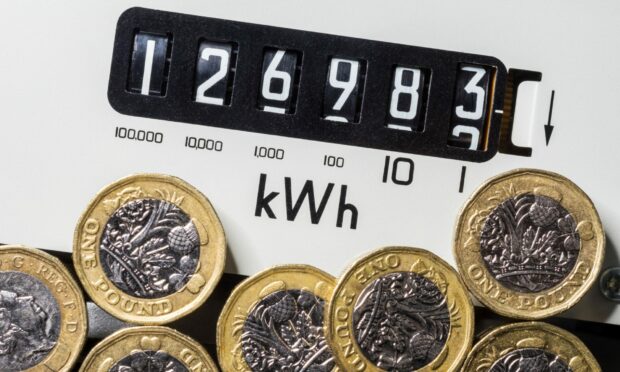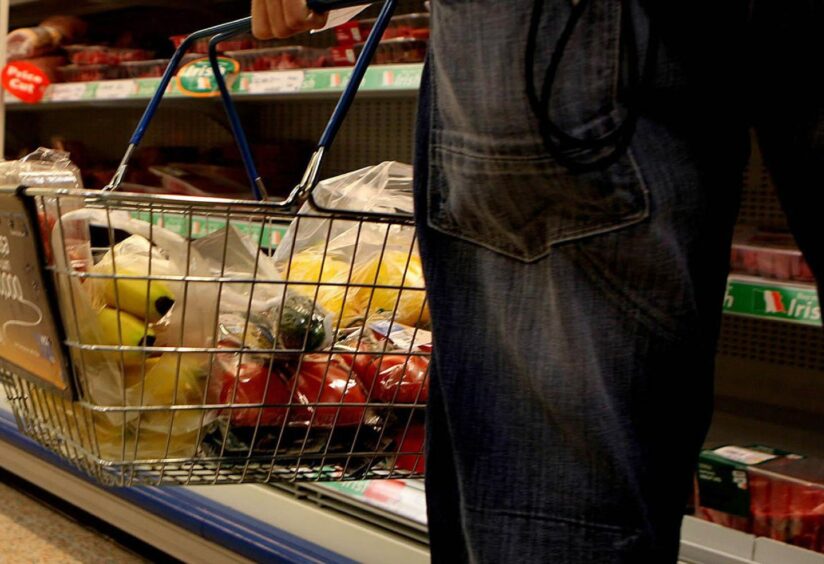Inflation remained on a near 30 year high in January as prices resisted the traditional tendency to fall in the month after Christmas.
The Consumer Prices Index (CPI) rose by 5.5% in the 12 months to January 2022, up from 5.4% in December 2021
However prices day for the Office for National Statistics (ONS) revealed the rate edged down 0.1% in the month of January 2022, compared with a fall of 0.2% in January 2021.
Costs that continued to drive the rate higher came from housing and household services and transport – principally from motor fuels which reached record levels across the UK last week, and second-hand cars, the ONS said.
Food and drink prices and many everyday essentials have also been on the rise.
While the the small decline in the overall rate in January “offers some hope” inflation may start to ease, pressures driving up fuel and energy prices including potential conflict in the Ukraine means households are still facing a cost-of-living crisis.
April will be a key month when millions of households face soaring energy bills.
The Bank hiked interest rates earlier this month to 0.5% in the first back-to-back increase since 2004, signalling more are on the way as it looks to rein in rampant inflation.
It is forecasting that inflation will soar further due to painful energy price rises before peaking at 7.25% in April – the highest level since August 1991.
Cruel blow
A savings expert at Scottish Friendly described persistent inflation as a “cruel blow” to family finances just as opportunities to travel and socialise are opening up.
He said inflation was eating into any savings households might have made during the pandemic – and warned that the “worst is yet to come”.
Kevin Brown said: “Households are being dealt a cruel blow as rising living costs are wiping out families’ disposable income at a time when many were looking forward to being able to spend more freely.
“Travel restrictions are easing, social distancing has ended and the economy is back and up running, but families are finding the money they may normally have left over, after paying for essentials, is being swallowed up by inflation.
“Households in Britain built up a large cash pile of excess savings during the pandemic, but that money is draining away as food prices and fuel costs have spiked.
“Sadly, the worst is yet to come for households with tax rises and higher energy bills due from April.”
Faster rates ahead
CBI lead economist Alpesh Paleja, said: “We haven’t seen the end of rising inflation.
“Prices are set to rise at faster rates in the months ahead as the upcoming increase in Ofgem’s energy price cap compounds existing cost and supply chain pressures.
“With the resulting squeeze on household budgets expected to weigh on economic growth, it was encouraging to see the Government step in to moderate the impact of energy price rises on the most vulnerable.”
Some hope
Head of economics at the British Chambers of Commerce Suren Thiru, said: “Rising inflation highlights both the cost-of-living crisis facing households and the uphill struggle for businesses to keep a lid on price rises amid surging cost pressures.
“While the headline annual figure remains at a 30-year high, the decline in monthly inflation in January offers some hope that we may be nearing the peak in the current spike in inflation.”
He said it was likely the rate would peak in April when the energy price cap drives up home energy bills and tax on bars and restaurants comes back after it was cancelled to help ease the effect of the pandemic.
“Inflation should peak at over 7% in April as reversal of the hospitality VAT cut and the energy price cap rise enters the calculation.
“However, the current Russia-Ukraine tension could keep inflation higher for longer by triggering a further surge in wholesale energy costs,” Mr Thiru said.
Caught in a trap
Mr Brown urged employees to ask for pay rises to help overcome rising costs.
“On top of rising living costs, wages are failing to keep pace with inflation which is contributing to falling living standards,” he said.
“People should try pushing for salary increases where possible to help offset their increased expenditure, but inevitably most people are unlikely to benefit from a significant increase in earnings.”
Mr Paleja worried that the UK economy needed to focus on growth to avoid stagnation and called on the government to boost investment.
“Looking beyond the near-term, it’s clear that the UK is caught in a low growth trap, and the only way to get out is a relentless focus on productivity.
“Measures like a 100% permanent investment deduction and a future-focused approach to regulation and skills are vital to help us avoid another lost decade of growth.
“Enhancing the economy’s growth potential is the only way to withstand future inflationary shocks and deliver a sustained boost to living standards.”
Mr Thiru added that persistent inflation means the cost of borrowing will likely rise again in March.
He called on government to reduce cost pressure by delaying a rise in National Insurance for employers in April.
“Rising inflation could well be a significant drag anchor on UK economic output this year by weakening consumer spending power and damaging firms’ finances and ability to invest.
“Increasing inflation means that a March interest rate rise is expected. However, tightening monetary policy too quickly risks undermining confidence and the wider recovery and will do little to curb the global factors behind the current inflationary surge.
“More needs to be done to limit the unprecedented rise in costs facing businesses, including financial support for those struggling with soaring energy bills and delaying April’s National Insurance rise.”

